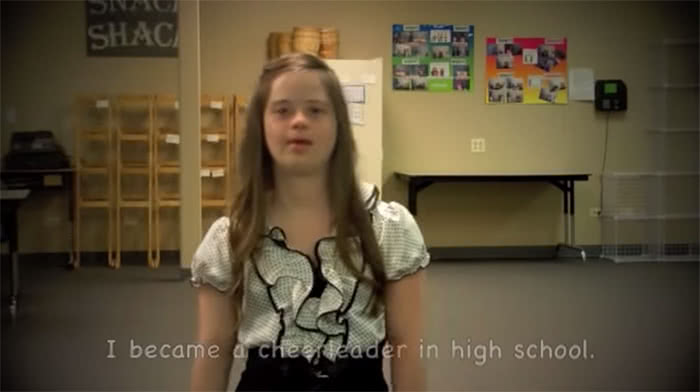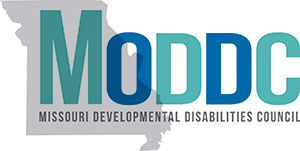Missouri Developmental Disabilities Council Education Initiatives
Students and young children receive quality education in inclusive settings, affording them the opportunities for transition to further their education or enter integrated employment opportunities of their choice. The Council believes that all children with developmental disabilities can attend their home school district in a regular education placement with the necessary modifications and supports as mandated by the Individuals with Disabilities Education and Improvement Act (IDEA). This mandate states that the first consideration for all students must be in the regular education environment with the provision of appropriate modifications and accommodations.
Students with developmental disabilities are to receive modifications and the supports they require for a Free and Appropriate Public Education (FAPE) in the Least Restrictive Environment (LRE) under the Individuals with Disabilities Education Act 2004 (IDEA). Schools must also demonstrate accountability for Average Yearly Progress (AYP) as mandated through No Child Left Behind (NCLB).
To promote best practice and reverse the trend of pulling students with developmental disabilities out of classrooms for instruction and, instead, provide great opportunities for students to be successful in the general education classroom with their peers, the Council has made investment with the University of Missouri-St. Louis through the CFI process to implement a peer support project in three Missouri high schools. The peer support model will create a curriculum that will be available to schools throughout Missouri that reflects a commitment to providing students with disabilities the opportunity to learn new academic and social skills in the general education classroom. The project will focus on two distinct components: First, a peer support program will be designed that will allow interested students to assist their peers with disabilities to improve their academic performance, and secondly, provide students with developmental disabilities the opportunity to be in an inclusive classroom. The project will cultivate and use natural supports to help students build quality friendships with their typical peers.
According to the President's New Freedom Initiative report (2001), one of five adults with disabilities do not graduate from high school, people with disabilities are poorer and more likely to remain unemployed than those without disabilities. According to the U.S. Census Bureau, the unemployment rate for individuals with developmental disabilities is between 80 and 90 percent. The Council will continue to explore initiatives that will increase opportunities for students through post-secondary education and competitive employment.
Please contact 800-500-7878 if you have questions regarding inclusive education for individuals with developmental disabilities or the Council's education initiatives.
Current Council Education Initiatives:
Past Council Education Initiatives:
The Missouri Developmental Disabilities Council has invested in two three-year projects:
- The Missouri Peer Supports Project is about creating natural supports for students with developmental disabilities as well as true lasting friendships between typical students and students with disabilities. Peer mentors provide support that addresses the academic needs of students with disabilities as well as their social and emotional needs. The University of MO-St. Louis was selected to oversee the project and three schools: Kirksville, Carthage and St. Charles West High Schools were selected to participate in the project, now in its final year.
- The Inclusive Community Project has a focus to increase the number of students with intellectual developmental disabilities receiving an inclusive education. This project began September 1, 2013. UMKC Institute for Human Development will oversee the project and schools will be selected to participate who meet certain criteria.
Both projects will assist the Council in achieving their Education five-year plan goals and objectives.
Inclusion Video Contest: In awareness and celebration of Inclusive Schools Week during the 1st week of December, 2012, the Council sponsored a video contest among Missouri's schools to highlight inclusion in schools and communities. Eighteen videos were submitted to the Missouri Developmental Disabilities Council that showcased the inclusion of students with disabilities in their school and community. The work and effort by the students and schools who participated in creating these videos made the task of selecting a winner very difficult. Winning schools were St Charles West, St. Charles (Grand Prize) and Wyman Elementary, Rolla (Honorable Mention). The videos were judged on student involvement, creativity, originality and how the schools will utilize their winnings to promote inclusion in their school. Click on the links above to watch the winning videos!
Education Links & Resources & Videos:
Missouri Department of Elementary and Secondary Education, Division of Special Education:
- Birth to 3 Individual Family Service Program (IFSP)
- Ages 3-21 Individual Family Service Plan (IEP)
- Comparison of the IFSP and IEP (PDF)
- Frequently Asked Questions
- The Individuals with Disabilities Act (IDEA) of 2004
- Office of Special Education News and Updates
- Free and Appropriate Public Education (FAPE) (PDF)
- Q & A RE: Eligibility for the Severely Disabled (MSSD)
- Least Restrictive Environment (LRE)
Family Resources:
"Don't Limit Me" Video: "Don't Limit Me" by Cathleen Allen. A powerful video message from Megan Bomgaars, a Denver student with Down Syndrome, stating why Inclusion is so important for ALL students. Thank You Megan!

About Restraint & Seclusion: Students deserve to be treated with dignity and respect and those with challenging behavior, which can include children with disabilities, should be treated with the same respect and dignity that everyone is entitled to. Yet, students across the US remain at risk of being subjected to traumatic, dangerous and dehumanizing procedures, referred to collectively as restraint and seclusion, as a means of managing challenging behavior in school. The Missouri Developmental Disabilities Council encourages you to take a moment and link to the following website for information, checklists, restraint and seclusion laws and policies by state http://stophurtingkids.com. The video features testimonies from students who experienced restraint and seclusion in the school system.
The Council's Public Statement on Abuse & Neglect (April 2006)

